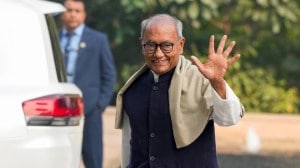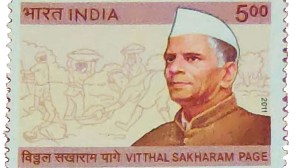Regulating the regulator
It8217;s over four years since Telecom Regulatory Authority of India TRAI has been divested of its power to settle disputes between servi...

It8217;s over four years since Telecom Regulatory Authority of India TRAI has been divested of its power to settle disputes between service providers. Parliament in its wisdom amended the TRAI Act in 2000, transferring the dispute settlement power to another body specially created for that purpose, the Telecom Disputes Settlement and Appellate Tribunal TDSAT. The amendment came in the wake of conflict-of-interest controversies over the vastly different roles the TRAI had been called upon to play as a regulator and an adjudicator. TDSAT, as the name suggests, has also been empowered to sit in judgment on appeals against any order passed by TRAI in pursuit of its regulatory authority. The demarcation of responsibilities between the two bodies is as clear as it could have been. But TRAI, headed by ex-bureaucrat Pradip Baijal, does not still seem to have come to terms with the loss of its quasi-judicial power. Its repeated efforts to encroach on the domain of TDSAT does not augur well for the health of economic reforms.
Take the two orders TDSAT was forced to pass last month repelling TRAI8217;s back-door attempts to re-enter the dispute settlement area. Both the orders have their genesis in one bizarre sequence of moves made by TRAI in December 2003. It started on December 4 with a direction the TRAI gave out of the blue to Bharat Sanchar Nigam Limited BSNL, the biggest state-owned telecom company. TRAI directed that BSNL, which has the widest network in the country, should under no circumstances refuse to connect any call originating from any private service providers. It added that 8216;8216;in case of any dispute, the issue should be brought to the notice of the Authority.8217;8217; The provocation for the direction, TRAI said, was a complaint it had received two days earlier from a private service provider in Punjab, Himachal Futuristic. Yes, it8217;s the same company that was about a decade ago set to storm the whole country with the blessings of the then communications minister, Sukh Ram. And TRAI, which apparently acted so promptly on Himachal Futuristic8217;s complaint, is the same agency that not so long ago sat for a whole year on BSNL8217;s request to bar Reliance Infocomm from providing roaming facility in violation of its limited mobility licence.
Whatever the merits of Himachal Futuristic8217;s complaint, the issue is not its validity but the forum chosen by the company to settle its dispute with BSNL. Worse, the manner in which TRAI had readily resumed the role of an adjudicator on Himachal Futuristic8217;s complaint in the teeth of the 2000 amendment. When BSNL refused to recognise TRAI8217;s jurisdiction in the matter, the regulator shot off a letter on December 22 threatening to slap heavy fines and initiate criminal proceedings against the chairman and managing director of BSNL. A day later, BSNL replied that it would appeal against TRAI8217;s order before TDSAT. TRAI did not relent even after that. Instead, upping the ante, it issued a general direction on December 31 declaring in effect that all disputes related to interconnection between different networks should be referred to TRAI.
Invoking 8216;8216;general consumer interest8217;8217;, TRAI had in one stroke set itself up as a parallel dispute settlement mechanism. And given the kind of order it had already passed in the case of Himachal Futurstic, TRAI8217;s motive in encroaching on TDSAT8217;s jurisdiction seemed to be to help private operators use the BSNL network without paying anywhere as much as they would have to in the existing arrangement. This despite the fact that what is truly in public interest is not to bleed BSNL but to encourage private operators to expand their own networks. None of the private operators has so far complied with the mandated social obligation of reaching out to remote rural areas.
It was in such circumstances that BSNL8217;s appeal against TRAI8217;s orders led to the odd spectacle of one statutory body reining in another body created under the same law. Headed by former Supreme Court Judge D.P. Wadhwa, TDSAT held that 8216;8216;TRAI cannot devise its own method of dispute resolution outside the provisions of the Act.8217;8217; Pointing out the distinction between regulation and dispute resolution, TDSAT said that its own functions and those of TRAI were on 8216;8216;altogether different planes8217;8217;. Surprisingly, even after such a clear ruling in April, TRAI persisted with its erroneous self-perception and filed a review application. While dismissing the review application in August, TDSAT gave another lecture on the question of jurisdiction to this rather reluctant student called TRAI.
There are reports that TRAI, thwarted as it is in its repeated attempts to help private interests at the expense of public money, is planning to move the Supreme Court. It is a pity that when the telecom sector is booming, the two bodies entrusted with the job of supervising its health should be caught in an ugly turf war. The success of the reforms process hinges critically on the functioning of regulatory bodies and tribunals. The cross-connections that presently mark the governance of the telecom sector need to be addressed urgently.
- 01
- 02
- 03
- 04
- 05































